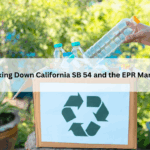Production Part Approval Process (PPAP) is a team-oriented approach that intends to use tools and techniques to formally reduce risks related to production and prior to the release of a product or parts.
- This standard was initially developed by AIAG (Automotive Industry Action Group) in 1993 based on the inputs given by big 3 – Ford, Chrysler and GM.
- PPAP has now spread to many industries beyond automotive.
- PPAP manages change and ensure product conformance thereby enhancing customer satisfaction.
The main purpose of the PPAP is to determine that if all customer engineering design record, specifications are properly understood by the organization, the manufacturing process has the potential to meeting quality requirements during an actual production and at the quoted rate. PPAP defines all the requirements for part production approval, process enhancement including production of bulk materials.
PPAP is important for three things:
- For customers (the OEM) to validate the supplier’s process to supply product at the required quality and quantity under normal production conditions.
- For suppliers to understand the customer’s product requirements and specifications.
- For both customer and supplier to have agreed-to and documented expectations.
Cost reduction, faster time to market, and maintaining / improving quality are three tenets for organizations in the always evolving and highly competitive manufacturing industry. Getting quality parts done right and taking corrective action earlier within the lifecycle significantly saves more time and money compared to rework, repair and scrap.
Every OEM’s goal is to possess a reliable and repeatable process, and PPAP enforces that standard, organization wide.
Benefits of PPAP Submissions
- Helps to maintain design integrity
- Ensures issues are identified before-hand for early resolution
- Reduces cost of poor quality and warranty charges.
- Assists with managing supplier changes
- Prevents use of unapproved and nonconforming parts
- Identifies suppliers that need more development
- Improves the customer satisfaction and overall quality of the product.
Talk to our PPAP specialist today and learn more about how PPAP can help in product and quality matters.





